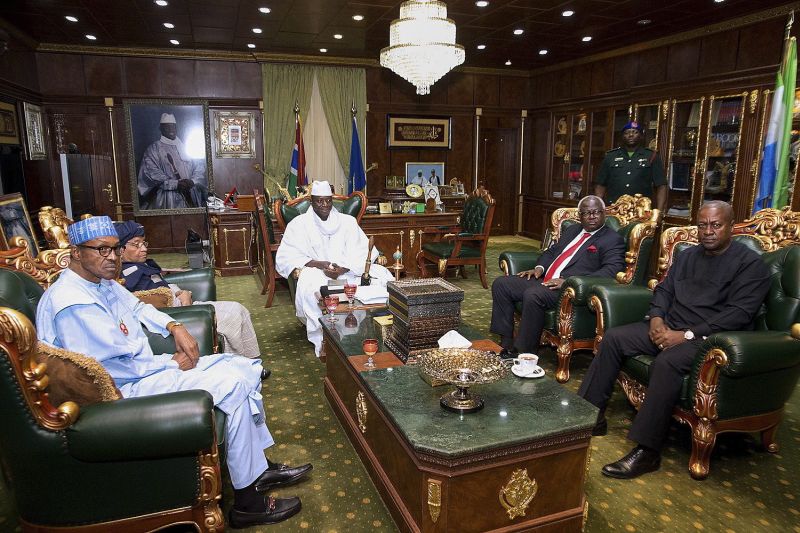Gambia: ECOWAS assuming responsibility for region's problem
If Jammeh tries to stay in power, things may yet get very ugly. ECOWAS is threatening to take military action against him. Nigeria, the most powerful member country, and Senegal, Gambia’s only neighbour, decisively support this approach. In an attempt to de-escalate matters, on the other hand, Nigeria has offered to grant Jammeh asylum.
In the long run, the determined West African approach is more likely to lead to stability than simply condoning the strongman, as was done elsewhere in Africa. Stabilising an autocrat’s grip on his country means that discontent and frustration will keep building up since the autocrat’s rule will stay repressive and foster evermore anger. Evermore people will believe that violence is the only means to resolve disputes, and entirely legitimate too.
It matters that ECOWAS is taking a different approach. It is increasingly insisting on adherence to democratic principles in member countries, as I argued in a blogpost last month. I’m not sure what the reasons are, but there may be some lessons to learn. In this blogpost, I’ll briefly outline three hypotheses:
- The civil wars in Liberia and Sierra Leone were interlinked and went on for decades, ultimately dragging in other ECOWAS countries and the UN. The experience proved that a crisis that traumatises one part of a world region is prone to affecting the entire world region. Accordingly, it makes sense to prevent – and if need be – contain such crises early on. West Africa has had many serious crises, from the Biafra war to the collapse of Côte d’Ivoire early this century. Its leaders now accept that a West African problem requires a West African solutions.
- It helps that many West African countries, and especially the big ones, have been independent for at least 50 years. Two generations have thus grown up in independent nations. The longer a country is no longer under colonial rule, the less sense it makes to keep blaming its problems on foreign powers.
- It also helps that most West African countries, and – once again – especially the big ones, became independent without armed struggle. In this world region, France and Britain gradually granted colonies self-administration, and the colonies’ African leaders than pressed these two colonial powers into negotiating peaceful transitions to sovereignty. Sadly, this history did not prevent despotic one-party governments, military rule and civil wars. The autocratic leaders, however, could never rely on the kind of mind set that develops in insurgents’ militias. In guerrilla warfare, one’s life depends on personal loyalty and obedience must be enforced strictly. Dissent is seen as treason which deserves the death sentence. When an armed struggle drags on for a long time, a militia becomes ever more mafia-like. That is necessary for prevailing in war, but it makes it close to impossible to accept pluralistic democracy once the war is over. When a liberation army takes over, its leaders believe that they deserve the absolute command they are used to. They feel legitimised by the sacrifices they and their troops have made for their people.
In regard to Southern Africa, Henning Melber, who joined Namibia’s SWAPO as a young man, assessed these matters on our website last week. In this African region, many important countries only became independent or overcame apartheid a generation after West African countries became sovereign.
In governance crises, the leaders of the regional organisation SADC (Southern African Development Community) tend to rally around the strongman and show little concern for democratic principles. They still seem to believe that power comes from gun barrels, as Mao Zedong taught. That is only true in the short term, however, as I argued last year, referring to South Sudan. What is needed in the long run is legitimacy in the people’s eyes. Accordingly, it makes sense to insist on democratic principles.
Unfortunately, SADC’s approach to dealing with governance crises is still more typical of Africa as a whole than the one of ECOWAS. I believe that ECOWAS will probably solve the Gambian crisis without bloodshed. The threat of military is likely to suffice, and economic sanctions might work too. But even if ECOWAS troops do have to move in, my hunch that such an operation will be less traumatic than Jammeh’s continued rule would be. ECOWAS is setting the right example in its approach to regional stability and governance.










